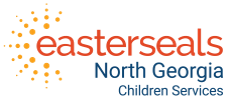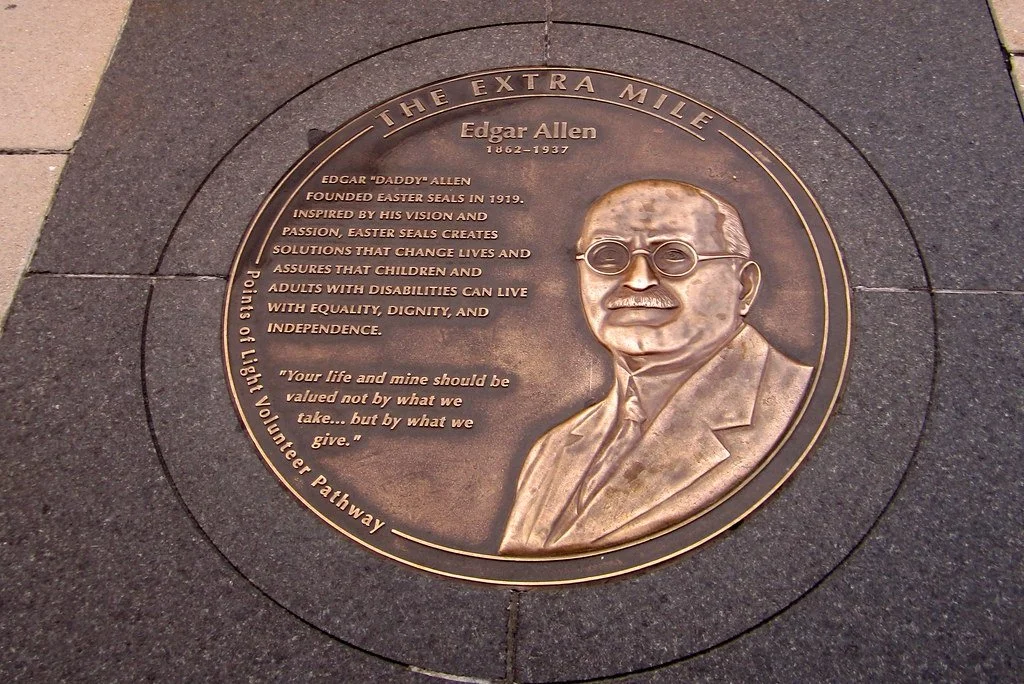History
Easterseals
Easterseals was established in 1919 after Ohio businessman Edgar Allen lost his son in a car accident and began to see the challenges faced by children with disabilities who were often hidden from public view at the time. The first Easter "seals" campaign was launched in 1934 to raise money for the organization. Donors received spring lily-inspired seals, designed by Cleveland Plain Dealer cartoonist J.H. Donahey, to place on envelopes and letters. Over the past 100 years, the nonprofit has gained a reputation as a trustworthy organization that works tirelessly to help children and adults with disabilities – in addition to veterans and older adults – to be able to live, work and play within their communities. By combining on-the-ground presence, deep expertise and diverse programs, 71 Easter Seals affiliates nationwide are advancing change to assure that people with disabilities and other special needs can thrive in their communities.
An organization associated with Easter Seals first arrived in Georgia in the early 1930s and was later incorporated on November 17, 1950. By 1990, the Georgia corporation dissolved and was broken into separate Easter Seals divisions, leading to the incorporation of ESNG on November 7, 1990.
Easterseals North Georgia
Easterseals North Georgia (ESNG) is a 501(c)(3) non-profit organization that provides high-quality services to children with disabilities and special needs as well as their families. The nonprofit covers 44 counties, including metropolitan Atlanta and northeast Georgia.
Serving as president and CEO since 1992, Donna Davidson is an expert and advocate in early education and early intervention. Under Donna’s leadership, ESNG opened Georgia’s first inclusive child care program in 1992 which has since expanded to reach 1,500 children daily in 19 locations across metro-Atlanta and northeast Georgia
ESNG is governed by a local, nonpaid 14-member board of directors. The board serves as fiduciaries who steer the organization towards a sustainable future by adopting ethical, legal governance and financial management policies as well as making sure that the nonprofit has adequate resources to advance its mission.
ESNG staff is comprised of a diverse workforce of 400 employees that consists of therapists, center managers, teachers, assistant teachers, social workers, education and disability specialists, nutrition and health specialists and physical, occupational and speech pathologists. The ESNG administrative staff consists of human resource professionals, accounting professionals and program directors.
Annually, parents, community members and corporate employees volunteer in ESNG’s 19 centers to work with the children, assist with maintenance and upkeep and participate in various events.



